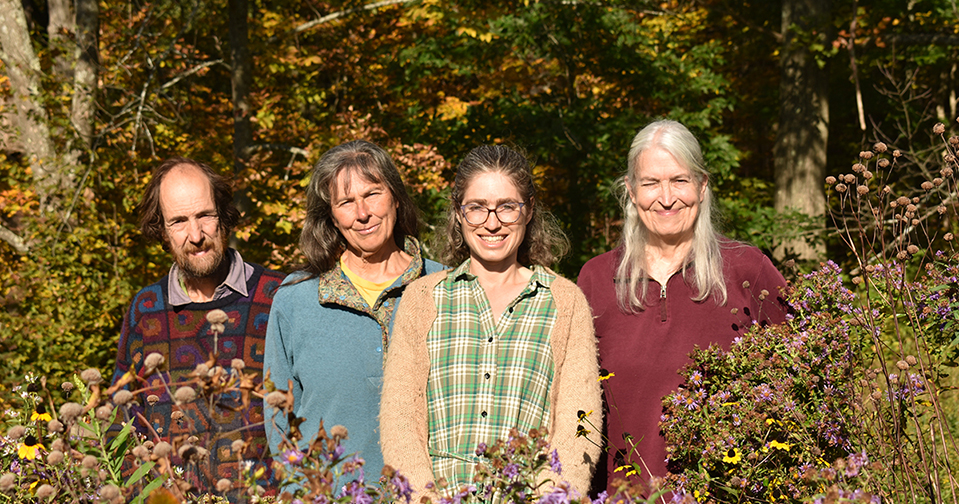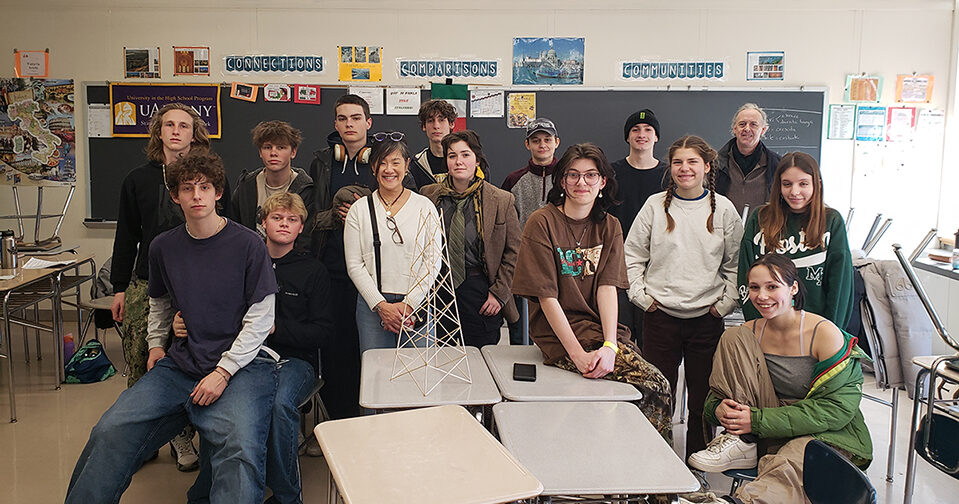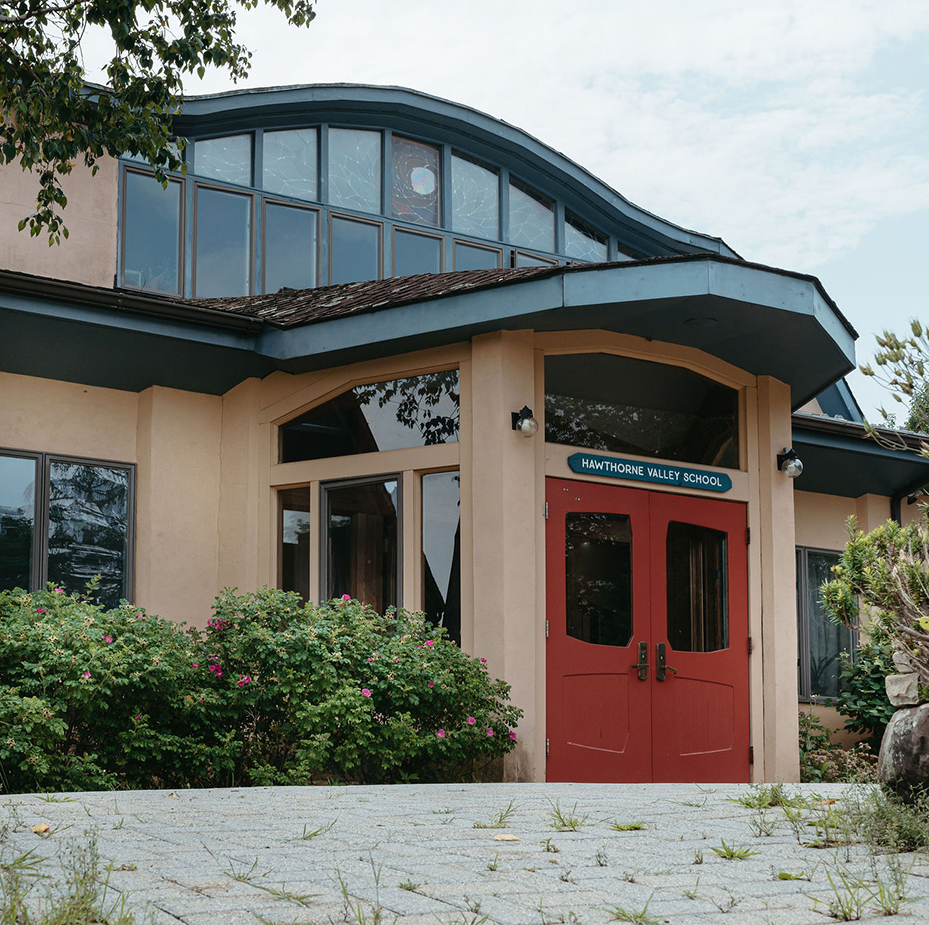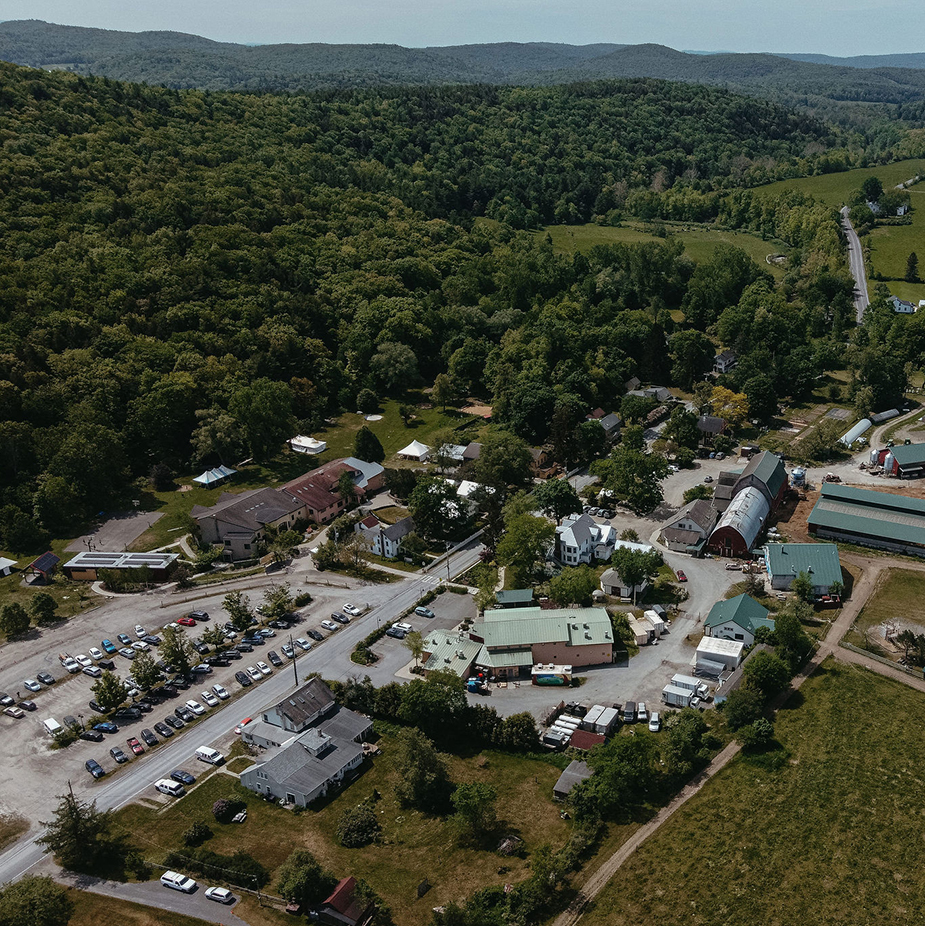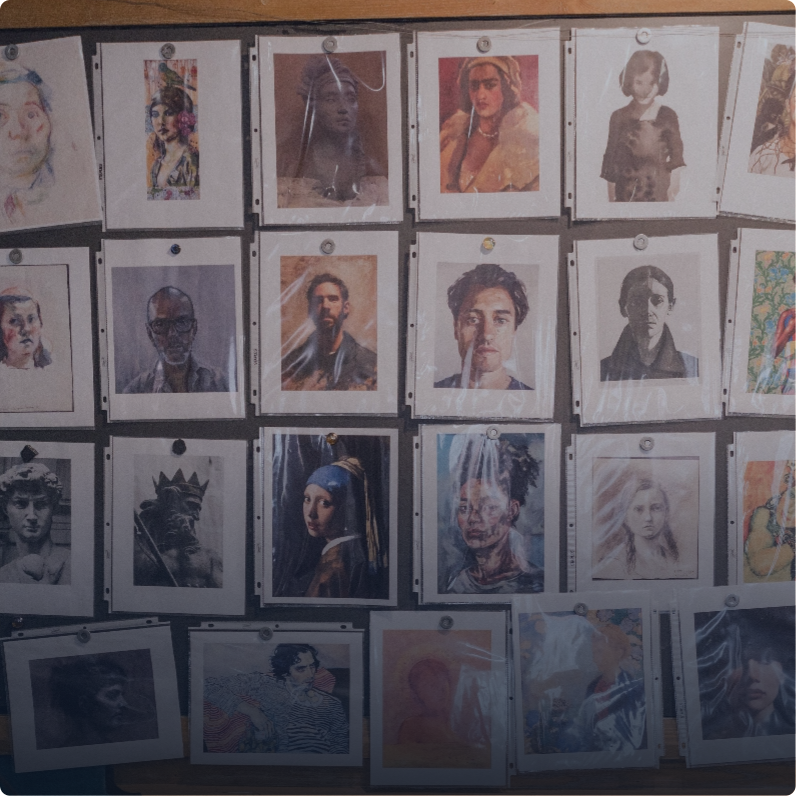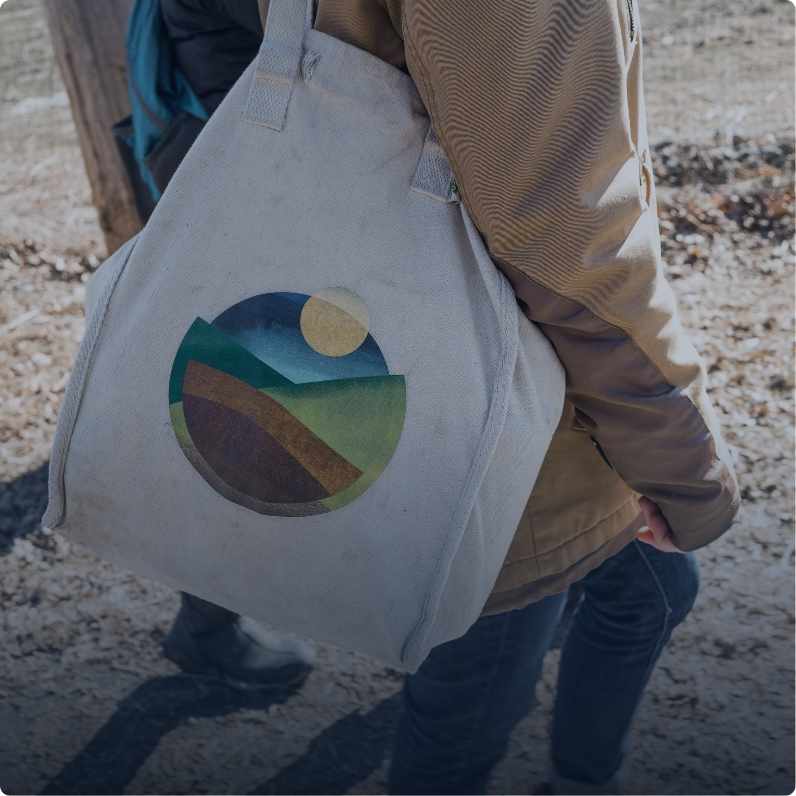Inner Change - World Change
All brain can be numbing and detached.
All heart can be painful and paralyzing.
Thank goodness for artists, who can help us bridge between head and heart.
Here’s to art of love and agency.
Here’s to the art of witness and grace.
Here’s to the art of thinking and feeling.
Here’s to the art that restores our souls.
Katherine Collins
In April of this year, while many Waldorf teachers were attending the
World Teachers' Conference in Switzerland, another amazing conference,
Inner Connections, was happening to the north in Jarna, Sweden. Jarna is an
Anthroposophical Cultural Center. Like Hawthorne Valley, there is a Biodynamic farm, a dairy, a research center, a store, and a Waldorf School, but there is also a performance theater and cafe, a flow form water treatment facility, a hotel, and a medical clinic—all on the Baltic Sea. You can watch the Northern lights dance across the waters... there is even a James Turrell sky dome installation.
Inner Connections was uniquely inspiring. Each day speakers shared their life experience in the fields of medicine, parliamentary ministry, United Nations service, environmentalism, biology and cultural studies, journalism, agriculture, social systems, psychology, and more. Each morning and evening musicians played. All centered on the health of our planet and change that is needed from the perspective of relationship. One of the best aspects about the conference was the weaving of the arts into the daily focus. In the wholeness of our being human, the arts embrace and express the soul’s connection to the daily living of each moment. As the poem above by Katherine Collins states, it restores our souls—and is a conduit for transformation.
What is our relationship with the earth, climate chaos, the extinction of species, the acidification of the ocean, or the suffering of humanity? How do our microcosmic actions influence macrocosmic realities? The answers to these questions relate to the state of our planet, and also our inner state of health. One question raised by
Andri Snaer Magnason, that was interwoven in an evening artistic presentation
*, was about the challenge we face when we bend our minds to embrace new concepts. In times of change and disruption that happen periodically in human history, sometimes there are not even words for new conditions. Or when new phrases are termed, it takes time for us to realize the import and reality they reference. Future generations may wonder about how much our society understood about world changes that are taking place now—just as we sometimes wonder about the consciousness of past generations who lived through major world events that have changed the reality of the human experience on the earth.
The topic of climate chaos is complex and difficult on many different levels. When we, as children, parents, grandparents, stewards of the earth, citizens of our country, community members hear news about the challenges of this 21st Century, what do we do with it? The existential questions of postmodern humanity ever increase. Yet also, our understanding of how to work with transformation of significant ecological problems that have manifested on the earth is further along. What we can do as agents of change is so very, very much. The first step is to pay attention. Full attention—to be alive with inquiry. It is difficult to live into much of the scientific data and statistics, and it is essential. Active change then follows.
The Net Positive work at Hawthorne Valley that was launched at the May Day Celebration is dedicated to this transformation. It begins with a very exciting and complex vision of bringing new technologies into our energy use systems, but extends into aspects of community life, education, social culture, economics, waste management, our whole inner consciousness, and more. Net Positive is a way for us to learn together how to navigate through this new territory.
*"On Time and Water" by Andri Snaer Magnason. An Icelandic poet, artist, and author, Mr. Magnason combines scientific research on the evolving state of the earth with a rich reflection of his human journey in processing what these mean for his family and future generations.
Written by Janene Ping, Early Childhood and Council Chair

